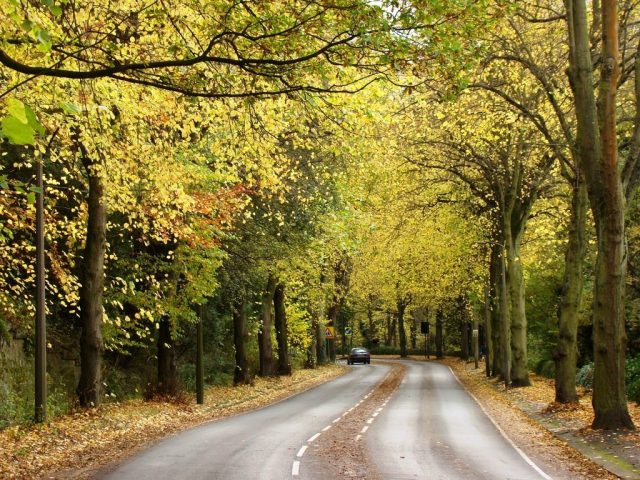In today’s urban and suburban environments, green spaces are more than just aesthetic additions—they are essential for mental well-being, biodiversity, and climate resilience. Yet, the health and longevity of trees and green environments require more than casual care. This is where arboricultural consultancy becomes a vital service. From tree risk assessments to long-term management strategies, arboricultural consultants offer professional guidance rooted in science and experience. In this article, we’ll explore the significance, process, benefits, and post-care aspects of arboricultural consultancy, helping you understand why it’s key to cultivating and preserving healthy green spaces.
What is Arboricultural Consultancy?
Arboricultural consultancy refers to the professional advisory services provided by qualified arborists or tree specialists. These experts assess, manage, and provide recommendations for the care and preservation of individual trees or entire green areas in residential, commercial, and public settings.
Whether you’re planning construction, managing a public park, or simply caring for trees on private property, arboricultural consultants offer tailored solutions that ensure the ecological and legal integrity of the landscape.
Why Arboricultural Consultancy Matters
Trees may seem self-sustaining, but without proper guidance, they can become liabilities or suffer premature decline. Arboricultural consultancy bridges the gap between nature and urban planning by offering:
-
Tree health assessments
-
Protection strategies during construction
-
Tree preservation orders (TPOs) compliance
-
Long-term management plans
-
Expert witness services for legal disputes
This breadth of services makes arboricultural consultancy essential in creating and maintaining sustainable environments that support both human life and biodiversity.
The Process: What to Expect from Arboricultural Consultancy
Engaging in an arboricultural consultancy service typically involves the following steps:
1. Initial Site Survey
A consultant visits the site to observe the trees, soil conditions, surroundings, and any relevant environmental factors. They collect data through visual inspections and advanced tools like decay detection equipment or GPS mapping.
2. Tree Inventory and Assessment
A comprehensive report is generated, listing the species, age, condition, and recommendations for each tree. This is crucial for identifying any potential hazards, diseases, or structural weaknesses.
3. Risk Assessment and Mitigation
Using recognized risk assessment models, the consultant determines the likelihood of tree failure and its potential impact, proposing actions like pruning, bracing, or removal where necessary.
4. Development and Planning Integration
For construction or land development projects, arboricultural consultancy includes BS5837:2012-compliant reports, ensuring tree protection is integrated into the planning permission process.
5. Management and Monitoring
Ongoing inspections and updates allow property owners or managers to monitor the health of the trees and adjust strategies accordingly.
Benefits of Arboricultural Consultancy
Hiring an arboricultural consultancy firm is not just about tree health—it’s a strategic investment in safety, sustainability, and legal compliance.
1. Preserving Tree Health and Longevity
With proper assessment and treatment, trees live longer, grow stronger, and contribute more significantly to the ecosystem.
2. Reducing Legal and Safety Risks
Falling branches, root conflicts, and diseased trees can pose serious liabilities. Arboricultural consultancy helps mitigate these risks with professional guidance and documentation.
3. Supporting Urban Planning
Consultants help integrate trees into urban development projects without compromising their survival or local biodiversity.
4. Maximizing Property Value
Well-maintained trees and landscaped environments add curb appeal and value to residential and commercial properties.
5. Environmental Stewardship
Arboricultural consultancy plays a role in carbon sequestration, air purification, and supporting local fauna—key aspects of environmental responsibility.
Common Services Offered by Arboricultural Consultants
-
Tree Surveys and Inspections
Regular assessments help detect problems early and plan proactive treatments. -
Planning Application Support
Essential for developments near trees, especially in conservation areas or where TPOs apply. -
Tree Risk Management
Identifies and addresses hazardous trees before they cause damage or injury. -
Tree Preservation and Protection Plans
Ensures trees are safely retained during construction and land alteration projects. -
Soil and Root Zone Analysis
Determines whether poor soil or compaction is affecting tree health and what can be done.
Post-Treatment and Ongoing Care
One common misconception is that trees only need a one-time checkup. In reality, post-treatment care is just as vital as the initial assessment. After implementing recommendations from an arboricultural consultancy, follow-up may include:
-
Scheduled Inspections: Periodic visits to ensure recovery and monitor progress.
-
Mulching and Soil Aeration: Enhancing root health and moisture retention.
-
Pest and Disease Management: Using environmentally safe methods to prevent infestation.
-
Structural Support: Installing cables or braces if needed for tree stability.
By investing in long-term care, clients ensure that the advice given by consultants translates into sustainable health and beauty for their green spaces.
Who Needs Arboricultural Consultancy?
Arboricultural consultancy isn’t just for large municipalities or developers—it’s beneficial for:
-
Homeowners: Especially those with mature or protected trees.
-
Landscape Architects: Seeking to harmonize green infrastructure with design.
-
Construction Companies: Needing compliance with tree preservation laws.
-
Municipal Bodies: Managing public parks and roadside tree networks.
-
Educational Institutions: Looking to maintain green campuses.
Anyone managing trees in complex environments can benefit from professional arboricultural advice.
Choosing the Right Arboricultural Consultancy
When selecting a consultancy, consider the following:
-
Qualifications: Look for Level 3 or higher certification in arboriculture.
-
Experience: A proven track record with various tree types and environments.
-
Tools and Technology: Use of modern diagnostic equipment is a plus.
-
References and Reviews: Check client feedback and case studies.
-
Memberships: Affiliations with bodies like the Arboricultural Association or ISA demonstrate credibility.
Conclusion: A Green Investment That Pays Off
Arboricultural consultancy is more than a tree service—it’s a proactive approach to preserving green spaces that are vital to community health, biodiversity, and climate resilience. Whether you’re a private landowner, a city planner, or a developer, partnering with a qualified arboricultural consultant ensures your trees receive the care and protection they need to thrive for generations. With science-backed insights and strategic planning, arboricultural consultancy truly is the key to healthy green spaces.









